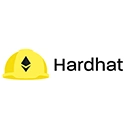The Hardhat network is a local Ethereum network that is specifically designed for development and testing of smart contracts. It comes bundled with the Hardhat development environment, providing a fast and flexible way to deploy and interact with smart contracts without needing to connect to the Ethereum mainnet or any testnets. In this guide, we will explore what the Hardhat network is, its features, and when you should use it.
What is the Hardhat Network?
The Hardhat network is an Ethereum-compatible blockchain that runs on your local machine. It allows developers to deploy contracts, run tests, and execute scripts in a controlled environment. The network is designed to simulate the Ethereum blockchain, providing features that facilitate development, such as:
- Fast Block Times: The Hardhat network has extremely fast block times, allowing for quicker testing and development cycles.
- Forking Capabilities: You can fork the state of the Ethereum mainnet or any testnet, allowing you to test your contracts against real-world scenarios without spending real Ether.
- Built-in Debugging: Hardhat comes with a built-in debugger, making it easier to diagnose issues in your smart contracts.
- Console and Script Execution: You can interact with your deployed contracts using a console or run scripts directly, which is useful for testing and automation.
When Should You Use the Hardhat Network?
The Hardhat network is ideal for various stages of smart contract development:
- Local Development: Use the Hardhat network for initial development and testing of your smart contracts. It allows you to iterate quickly without the need for gas fees or external dependencies.
- Testing: Write and run unit tests against your contracts on the Hardhat network to ensure they behave as expected before deploying them to a public network.
- Debugging: Utilize the built-in debugging tools to troubleshoot issues in your smart contracts. The Hardhat network provides detailed error messages and stack traces.
- Forking Mainnet/Testnets: If you want to test your contracts with real-world data, you can fork the Ethereum mainnet or any testnet. This allows you to simulate interactions with existing contracts and users.
Setting Up and Using the Hardhat Network
To get started with the Hardhat network, follow these steps:
1. Install Hardhat
If you haven't already set up a Hardhat project, you can do so by running the following commands:
mkdir my-hardhat-project
cd my-hardhat-project
npm init -y
npm install --save-dev hardhat2. Create a Hardhat Project
Next, initialize your Hardhat project:
npx hardhatChoose to create an empty Hardhat configuration file when prompted.
3. Run the Hardhat Network
You can start the Hardhat network using the following command:
npx hardhat nodeThis command will start a local Ethereum network that you can use to deploy and interact with your contracts. You will see output similar to:
Hardhat network is running at http://127.0.0.1:8545/
Accounts
========
0: 0x5B...B7D
1: 0xC2...F8A
2: 0x1F...E5A
...
4. Deploying a Contract
To deploy a smart contract to the Hardhat network, create a deployment script. For example, create a file named deploy.js in the scripts directory:
const { ethers } = require("hardhat");
async function main() {
const Token = await ethers.getContractFactory("MyToken");
const token = await Token.deploy("MyToken", "MTK", 1000000);
await token.deployed();
console.log(`Token deployed to: ${token.address}`);
}
main()
.then(() => process.exit(0))
.catch((error) => {
console.error(error);
process.exit(1);
});Now, in another terminal window (keeping the Hardhat network running), you can deploy your contract by running:
npx hardhat run scripts/deploy.js --network localhostThis command will execute your deployment script on the Hardhat network, and you should see the address of the deployed contract in the console output.
Conclusion
The Hardhat network is a powerful tool for Ethereum developers, providing a local environment for testing and deploying smart contracts. It allows for rapid development cycles, easy debugging, and the ability to simulate real-world scenarios through forking. By leveraging the Hardhat network, you can ensure that your smart contracts are robust and ready for deployment on public networks.

